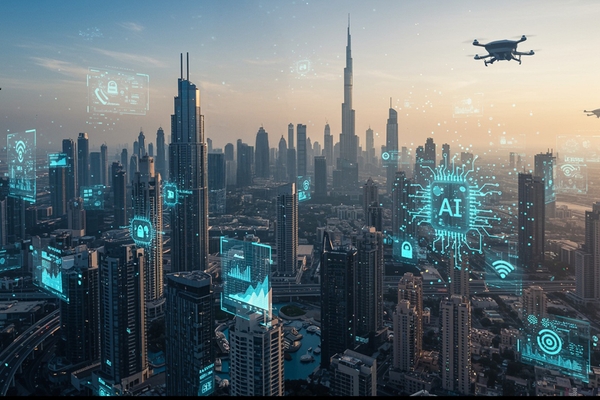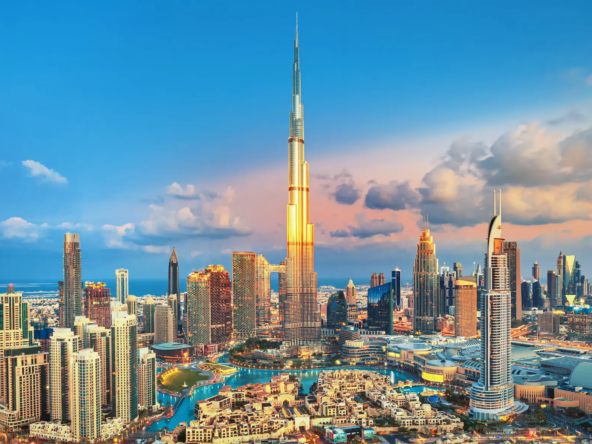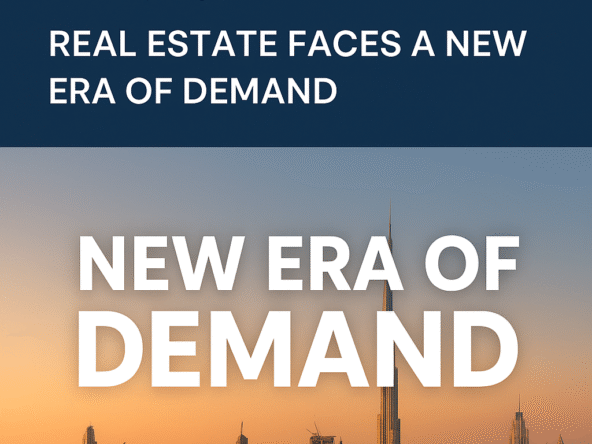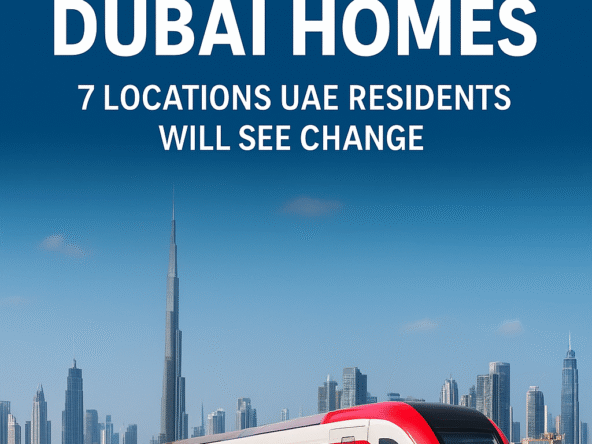How Generative AI Is Transforming Dubai Real Estate
Dubai has long been recognized as a global hub for luxury living, iconic architecture, and record-breaking property developments. From the Palm Jumeirah to Downtown Dubai, the city constantly reinvents itself to stay ahead of international trends. In 2025, the most powerful force reshaping Dubai’s real estate sector isn’t just architectural design or government policy—it’s Generative Artificial Intelligence (AI).
Generative AI is more than a buzzword. It’s a transformative technology that is changing how developers design projects, how agents market properties, how buyers search for homes, and how investors make decisions. With Dubai attracting record levels of foreign investment and innovation, the integration of AI into real estate is creating efficiencies, reducing costs, and delivering personalized experiences at a scale never seen before.
In this blog, we’ll explore the key ways Generative AI is transforming Dubai’s real estate market in 2025, the opportunities it unlocks, and what the future might look like for developers, brokers, and investors.
1. Smarter Property Search and Matching
Traditionally, property searches in Dubai involved browsing endless listings and working with multiple brokers. In 2025, AI-driven platforms use natural language queries and predictive algorithms to match buyers with homes that fit their exact preferences.
For example, a buyer can simply type: “Find me a three-bedroom apartment with Burj Khalifa views, under AED 3 million, close to a metro station, with high rental yield potential.” Generative AI then scans through thousands of listings, analyzes rental yield data, checks floor plans, and instantly produces a curated shortlist—something that would take weeks manually.
For investors, this means faster, data-backed decisions and fewer missed opportunities. For brokers, it means more time closing deals instead of filtering options.
2. Virtual Property Tours and AI-Powered Staging
Dubai’s real estate market thrives on international buyers—from Europe, Asia, and the Middle East—many of whom purchase properties without being physically present. Generative AI enhances this process with hyper-realistic 3D virtual tours and AI-driven staging.
Instead of a static photo gallery, AI tools generate fully immersive walkthroughs where buyers can change furniture styles, wall colors, or even see how sunlight moves through the apartment at different times of day. This personalization makes it easier for buyers to “feel at home” before making a decision.
For developers, it reduces marketing costs by eliminating the need for multiple physical show units. For buyers abroad, it provides trust and confidence in purchasing remotely.
3. Predictive Pricing and Market Analytics
Dubai’s property market is fast-moving, with monthly transactions often crossing AED 60 billion in value. One challenge investors face is predicting the right entry and exit points. Generative AI addresses this by analyzing:
Historical price data
Current demand and supply dynamics
Rental yields across neighborhoods
Macroeconomic factors (oil prices, interest rates, global market sentiment)
With these inputs, AI generates real-time pricing forecasts for each property type and area. For example, it might highlight that Dubai Creek Harbour apartments have a projected 12% rental yield increase in 2026, making it a better investment than Downtown apartments.
For institutional investors, this means more precise portfolio allocations. For individual buyers, it means avoiding overpriced purchases and focusing on value.
4. Generative Design in Architecture
Dubai is already known for futuristic design—from the twisting Cayan Tower to the upcoming Dubai Creek Tower. Now, generative AI is stepping into architecture and construction.
Architects are using AI algorithms to create building designs optimized for sustainability, airflow, natural light, and energy efficiency. Instead of manually sketching dozens of variations, AI generates hundreds of potential layouts in minutes, giving developers faster, greener, and more cost-effective options.
This aligns perfectly with Dubai’s Net Zero 2050 initiative, ensuring that the next wave of towers, villas, and communities are both stunning and environmentally responsible.
5. Hyper-Personalized Marketing
Real estate marketing in Dubai has always been competitive, with thousands of agents promoting new launches every month. Generative AI now enables personalized ad campaigns based on user behavior.
For instance, if an investor from London searches for Dubai properties online, AI automatically tailors ads showing luxury villas in Palm Jebel Ali with high rental yields, while a young professional in Dubai might see affordable apartments in Town Square with flexible payment plans.
This micro-targeting reduces wasted marketing spend and increases conversion rates, giving developers and agents a powerful edge.
6. Enhancing Legal and Documentation Processes
Anyone who has purchased property in Dubai knows that legal documentation can be time-consuming. AI is now being used to:
Draft and review contracts
Check compliance with Dubai Land Department (DLD) regulations
Generate bilingual documents (Arabic/English) instantly
Detect fraud or irregularities in transaction records
This reduces legal risk, speeds up the transfer process, and ensures smoother experiences for both buyers and sellers.
7. Customer Support and Virtual Agents
Property seekers often have dozens of questions: “What are the service charges?”, “Can I get a golden visa with this purchase?”, “What are the ROI trends in JVC vs. Dubai Hills?”
Instead of waiting for a human agent, buyers can interact with AI-powered chatbots available 24/7 in multiple languages. These virtual agents provide instant, accurate answers, schedule viewings, and even handle initial paperwork.
This is especially valuable in Dubai’s multicultural market, where buyers come from over 150 nationalities.
8. Risks and Challenges
While the opportunities are immense, AI in real estate also comes with challenges:
Data Privacy: Handling sensitive buyer data responsibly is crucial.
Over-reliance on AI: Human expertise is still needed to interpret insights and manage negotiations.
Bias in Algorithms: If training data is flawed, AI recommendations could be skewed.
Regulatory Oversight: Dubai authorities are working to ensure AI adoption aligns with compliance and consumer protection.
Developers and agencies that use AI responsibly will thrive, while those who cut corners may face trust issues.
9. The Future Outlook
Looking ahead, Generative AI is set to play an even greater role in Dubai’s real estate by 2030. We can expect:
AI-powered smart contracts on blockchain for instant property transfers
Metaverse-linked property showcases, where buyers explore communities virtually before construction begins
AI-driven sustainability models ensuring every building contributes to Dubai’s green goals
Seamless integration with Dubai Land Department systems for faster approvals
In short, AI will not replace real estate professionals—it will empower them to deliver faster, smarter, and more personalized experiences.
Conclusion
Dubai’s real estate market in 2025 is thriving, with record transaction volumes and increasing global attention. But the real story is not just about the skyline or new mega-projects—it’s about how Generative AI is quietly transforming every layer of the industry.
From property search to pricing, from design to marketing, and from legal processes to customer service, AI is making real estate in Dubai more efficient, transparent, and investor-friendly.
For buyers, this means smarter decisions. For investors, it means higher returns. For developers and agents, it means stronger relationships with clients.
As Dubai continues to position itself as a city of the future, Generative AI is the invisible architect shaping its next chapter.





